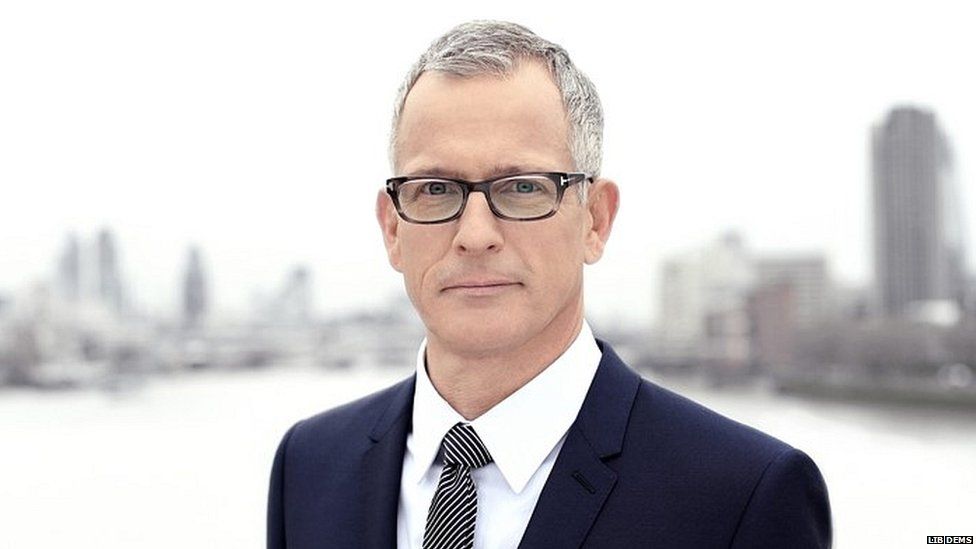Paddick quits Lib Dem frontbench over Tim Farron's 'views'
-
Published

Lord Paddick has quit as the Liberal Democrats' home affairs spokesman, citing concerns about leader Tim Farron's "views on various issues".
The ex-policeman resigned via Twitter but did not elaborate on the reasons.
During the campaign, Mr Farron had to clarify that he did not believe gay sex was a sin, after being repeatedly questioned on the issue.
The resignation came as Mr Farron said he wanted to revive the role of deputy leader axed after the 2015 election.
An election for deputy leader will take place later this month, with all of the party's other 11 MPs eligible to stand.
Potential candidates include former business secretary Vince Cable, a former deputy leader who also served as acting leader in 2008, and other former ministers in the coalition government such as Jo Swinson, Ed Davey and Norman Lamb.
Lord Paddick, who is gay, has been on the Lib Dem frontbench since last October.
He tweeted: "I've resigned as shadow home secretary over concerns about the leader's views on various issues that were highlighted during GE17."
Talking about faith
During the campaign, Mr Farron - who is a Christian - was asked repeatedly in media interviews to clarify his views on gay sex but did not, to begin with, answer directly.
However, he later insisted that he did not believe it was a sin and that, while he believed political leaders should not "pontificate on theological matters", it was right to address the subject as it had become "an issue".
"I am quite careful about how I talk about my faith. I do not bang on about it, I do not make a secret out of it," he said at the time, adding that the Lib Dems had "undoubtedly the best record" on gay rights out of all political parties.
The Lib Dems had 12 MPs elected to Parliament, four more than in 2015, although their vote share actually declined from 7.9% to 7.4%.
Mr Farron, who has been leader since 2015, said he was pleased with the result but there was a lot more work to be done to re-establish the party as an electoral force.
Despite winning back seats in the south of England lost in 2015 and making headway in Scotland, the party's national performance was patchy - it lost its last remaining seat in Wales, former leader Nick Clegg was defeated and 375 of the party's candidates lost their deposits as they got less than 5% of the vote.
Lib Dem peer Lord Greaves said it had been a "disastrous" election.
Writing on the Lib Dem Voice blog, he said there were parts of the country where "no-one voted for us" and the best that could be said was that the party had "survived".
But, announcing plans to revive the post of deputy leader, Mr Farron said it was a "very positive" time for the party.
"In the last Parliament, we didn't have any women and we didn't feel it was right to elect a deputy in those circumstances," he said.
"But I wanted to revive the role as it gives the party another powerful voice.
"Now a third of our parliamentary party is female and we have our most diverse group of MPs ever, I feel our MPs form a more representative group to elect a deputy leader".
If the election is contested, the result will be announced after a hustings on 27 June.
If there is only one candidate, the result will be announced on 20 June.
-
-
Published10 June 2017
-
-
-
Published25 April 2017
-